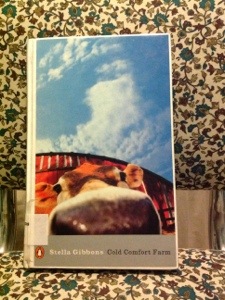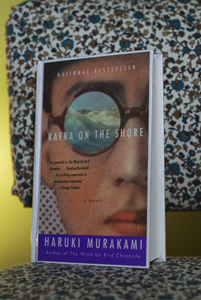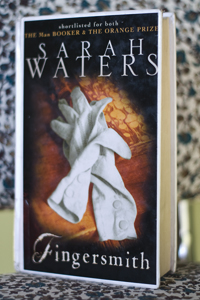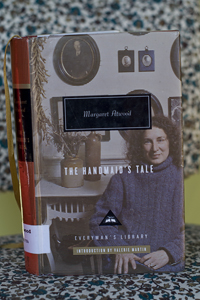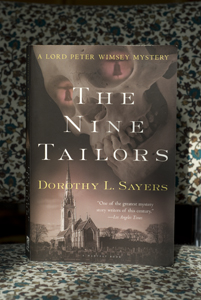This story follows several generations of an unusual family: Rosa, the girl with green hair who was too beautiful to live long, Clara, her precocious younger sister, who moves objects with her mind and stops speaking for nine years, Esteban, the choleric self-made man who loved both sisters, whose dark character brings ruin to his family. This saga covers love and hatred, indifference and revenge. The family is divided by politics. The women (grandmothers, mothers and daughters) are all full of an eccentric brand of common sense and are never thrown by drama. Nothing is ever as bad as it seems.
Category Archives: Thumbs up
The ones I liked.
Cold Comfort Farm by Stella Gibbons
Flora Poste, our heroine, suitably orphaned and penniless, goes to live with distant relatives on a gloomy farm ruled by a despotic matriarch. Flora should be despondent, but this is not that kind of novel. Flora faces drama undaunted, armed with savoir vivre and common sense. Shades of Maria or Mary Poppins.
The book cleverly apes the characters who commonly flourished in brooding “agricultural” novels, then deftly turns them on their ear with a character who sees through everything. Flora’s a tourist on the set of a Dracula movie, busily brushing away cobwebs and making candid asides about the corny script.
Murder Must Advertise by Dorothy Sayers
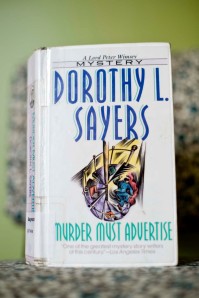 I liked it better than the other Dorothy Sayers.
I liked it better than the other Dorothy Sayers.
Lord Peter goes undercover at an advertising agency to investigate a suspicious death. He finds he has a knack for copywriting, as well as solving mysteries. My favourite scenes are the ones devoted to the ad agency, its office workers and their work. It’s like Mad Men but more innocent. The murder investigation becomes a hunt for drug dealers. Fun parts: Lord Peter has to bluff his way out when his undercover and real lives clash. Dumb parts: Lord Peter is too perfect: a friendly, flawless Sherlock Holmes. And there’s no Bunter.
The Poisonwood Bible by Barbara Kingsolver
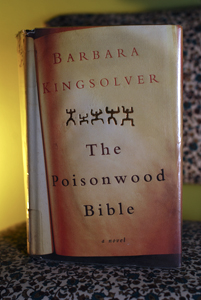 At the cusp of the Congo Crisis, an oblivious missionary family arrives in the village of Kilanga.
At the cusp of the Congo Crisis, an oblivious missionary family arrives in the village of Kilanga.
Nathan Price, the father, is aggressive and unbending, confident he is bringing enlightenment to Africa. The rest of the family is pulled along in his wake: an overshadowed wife and four daughters, each one different. Rachel, the superficial highschooler, Leah, the idealistic and strong twin, Ada, the cynical and crippled twin, and Ruth, the baby. The story follows each family member as they meet Africa (a thriving, cruel, smothering, surviving and liberating entity). Africa erodes Nathan’s power but does it really set his family free?
The Things They Carried by Tim O’Brien
It’s literally a book of war stories. But it’s also a book about war stories.
What makes a war story true? The facts? Or the fable? O’Brien says a tall tale can be more true than what actually happened. Maybe because exaggeration better satisfies the need to communicate feelings.
O’Brien blends fiction and truth about the Vietnam war till you learn to hear the stories without caring about specific facts.
This book is about experiencing war. And telling about that experience through stories.
It’s obscene and poetic, violent and emotional. What did the soldiers carry? More than I have.
Kafka on the Shore by Haruki Murakami
In one thread of this story, Kafka, a mature 15-year-old, runs away from home to escape a dark prophecy. He is intelligent but troubled. So he hides in a library where he meets a woman who lives in her memories.
The other thread is Nakata, an elderly simpleton, who is neither intelligent, nor troubled. Mr. Nakata can talk to cats. As he searches for a lost cat, he finds himself drawn despite himself into a courageous quest. Can Kafka run from his destiny? Or must he and Nakata act out their destinies to keep the universe from going awry?
Fingersmith by Sarah Waters
Sue Trinder was raised in a warren of thieves. Gentleman recruits her in an ambitious scheme to deceive an heiress, but once she replaces the victim’s maid, Sue is plagued with feelings of compassion. Will cold feet prevail?
The book’s atmosphere is like Oliver Twist meets Jane Eyre–complete with pickpockets, madhouses and murderers.
The cast of villains go about duping each other for selfish reasons, but Waters has a knack for making you root for the most fault-ridden humans.
The storytelling was so engrossing that at two points, I actually reacted out loud: “What?” and “Drama, drama!” The plot is twisted and fully enjoyable!
The Handmaid’s Tale by Margaret Atwood
This is a book most people read in high school. I didn’t, but it reminds me of a short story I had to read back then: “The Lottery.”
Atwood’s novel carries the same tones of a heartless society and its desperate victims.
It’s a cautionary tale of a dystopian society where woman are the core–the few fertile ones have become indispensable resources–yet they are without power. Every person is contained in their role and even the captors are enslaved.
Blood red suburbia. People are cloaked and confined. There is no one who trusts in humans.
The Nine Tailors by Dorothy L. Sayers
My brother gave me number 641 on the list for Christmas.
This is another novel in the detective genre, so I compared it as always to my benchmark: Agatha Christie novels. It was enjoyable but the “whodunnit” revelation was less satisfying than one of Poirot’s mise-en-scènes. Its focus seemed to be on recreating an environment (foggy and ominous) and a culture (wee British parish with a love for bellringing), in which a murder takes place, almost incidentally. What seems more important is a strained relationship between man and nature.
Note: Tailors are not “hemmers of pants,” but bells!
And Bunter rocks.
The Moonstone by Wilkie Collins
The Moonstone is the classic detective novel, complete with an invaluable but cursed jewel, a mysterious theft, suspicious strangers from a foreign land, rigid British social classes, quicksand, interrogations, an unassuming detective and cigars in the billiard room. It seems unoriginal. Too much of what we’ve already seen: Sherlock and Watson, Poirot, even board game Clue.
However, The Moonstone was the Apollo 11 of the detective genre. It’s not a stereotype, but the prototype. It was a launching pad for all detective fiction. As a fan of the genre, I can vouch for this stellar novel. It’s out of this world!

